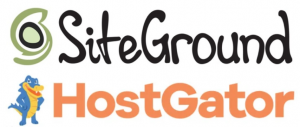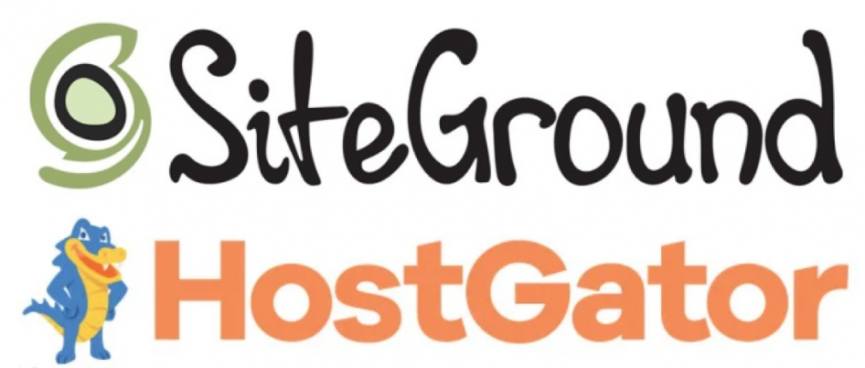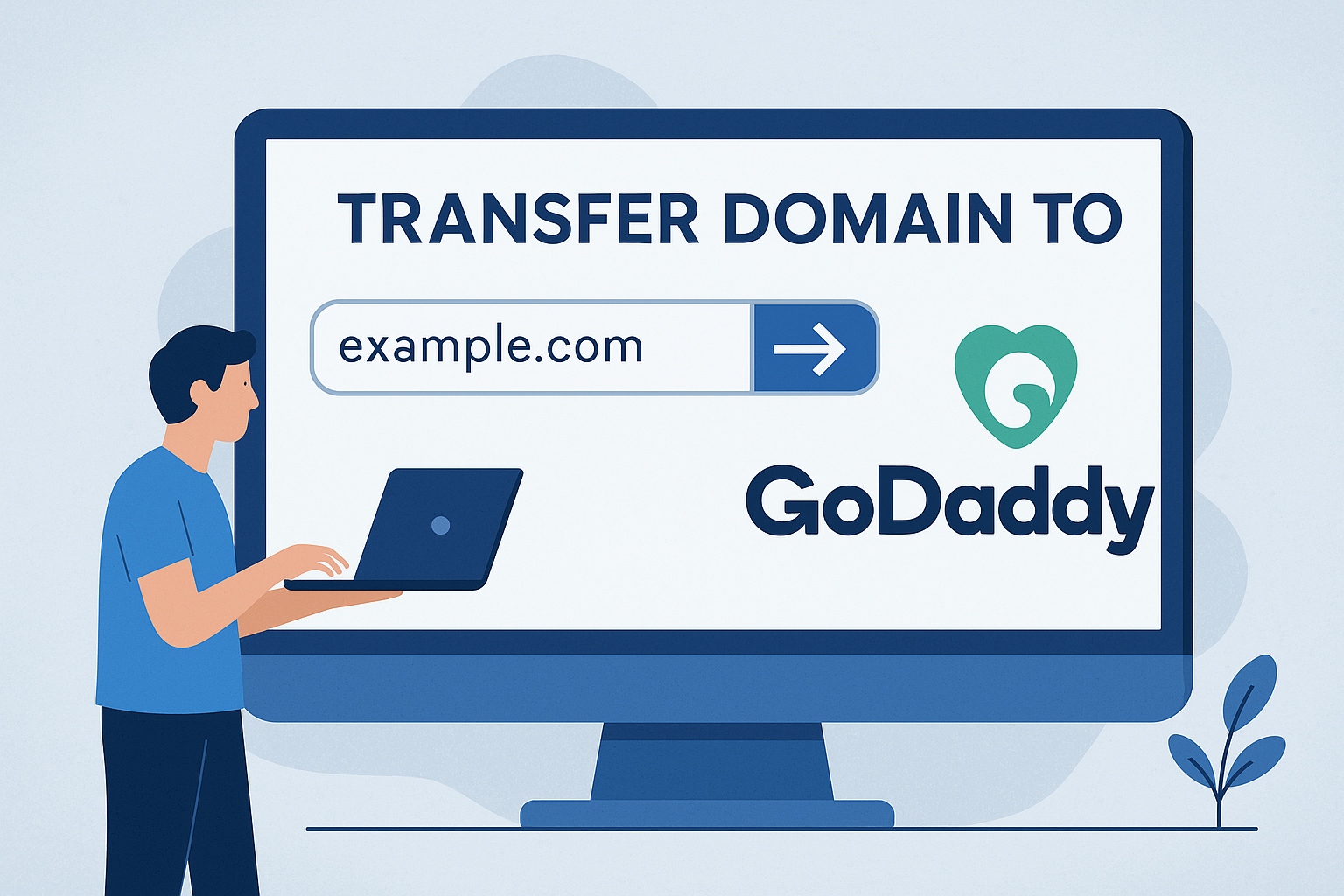Advertising disclosure
Hosting Canada is community-supported. We may earn a commission when you make a purchase through one of our links. Read Disclosure.
SiteGround vs HostGator Comparison

If you’re looking for hosting services, you have to look deep into various hosting providers to see how they truly stack up against each other.
Not all web hosting providers offer the same quality of services, despite what they may advertise.
By doing a thorough comparison of two sites, like SiteGround vs HostGator, you can see the difference in the quality of services.
In this guide, we’re going to do a thorough review of both SiteGround and HostGator to help you better understand the differences between the two as well as which one is superior.
SiteGround vs HostGator Features Compared

Web hosting may seem simple at first, yet there is a lot to consider when searching for a provider.
For example, you’ll want to know if a provider includes features like email accounts, an SSL certificate, and a free domain.
See how SiteGround and HostGator match up to each other when it comes to the features they offer.
For more information on SiteGround itself, check out our SiteGround review. To learn more about HostGator, visit our HostGator breakdown.
SiteGround
Key Specifications:
PROS
CONS
SiteGround Features
Customers who are signing up with SiteGround can choose between three tiers of shared web hosting.
However, we’re going to cover the features that are offered in the beginner tier as the basic features of any web hosting company help define the bottom line of it.
With SiteGround’s StartUp plan, customers get hosting for one website, which is the standard for entry-level tiers.
From there, SiteGround provides customers with a free email address, a free SSL certificate, a free CDN, 10 GB of webspace, and unmetered traffic.
On top of all that, users get out-of-the-box caching, managed WordPress support, eCommerce support, unlimited databases, enhanced security features, and a 30-day money-back guarantee.
SiteGround also claims that the StartUp plan allows for roughly 10,000 monthly visitors which is dependent on resources and caching.
The final attribute of SiteGround’s web hosting services is that customers are guaranteed 99.9% uptime—a strong selling point for any website owner who wants assurance that their site is always available.
Looking beyond shared hosting, SiteGround also offers WordPress-specific hosting, WooCommerce hosting, and Cloud hosting.
HostGator
Key Specifications:
PROS
CONS
HostGator Features
HostGator’s a basic tier, called the Hatchling Plan has many similar features compared with those of SiteGround.
Customers get hosting services on one just one website which includes a free domain for one year.
From there, HostGator users get a free SSL certificate, unmetered bandwidth and disk space, free website and domain transfers, one-click WordPress installation, a free email address, and a free HostGator website builder.
Plus, with cPanel access, you can take advantage of additional SEO tools, eCommerce tools, and more.
What’s more, HostGator gives its customers $150 Google Ads credit and $100 Microsoft Advertising credit. Customers can also take advantage of automated backups and built-in analytics tools.
Similar to SiteGround, HostGator guarantees its customers 99.9% uptime. In addition, customers get a 45-day money-back guarantee.
If you’re looking for other types of hosting, HostGator offers dedicated hosting, VPS hosting, and reseller hosting.
Looking at SiteGround vs HostGator for features, it’s difficult to say which comes out on top.
The two companies have substantial overlap in key features such as an SSL certificate, WordPress support, and a 99.9% uptime guarantee.
We’ll give HostGator a slight edge as the company doesn’t cap storage, offers a longer money-back guarantee, and has more types of hosting available.
Winner: HostGator
SiteGround vs HostGator Speed Compared
 The speed of a website is often a good sign to the success of that website as web visitors will not stick around to read a blog or buy a product if they have to wait for a page to load.
The speed of a website is often a good sign to the success of that website as web visitors will not stick around to read a blog or buy a product if they have to wait for a page to load.
These page speeds are determined in a large part by the host they use. Check out how the speed compares for HostGator vs SiteGround below.
SiteGround Speed
SiteGround has a reputation as a fast web host. This comes down to several factors—how many data centers the company has, and the quality of the hardware used in those centers.
SiteGround has data centers in the United States, the UK, the Netherlands, Singapore, and Australia.
Using Pingdom—a website monitoring company—we’ve reviewed the average response time of SiteGround to see how the company scores in the speed category.
Over the past 7 days, SiteGround has reported an average response time of 0.364 seconds—a speed that any website owner would be thrilled about.
Looking back over the past 12 months, SiteGround has never posted a score above 0.522 seconds. The average response time over the past year is 0.428 seconds.
HostGator Speed
HostGator has a smaller network than that of SiteGround—it only has data centers in Houston, Texas, and Provo, Utah.
Having two data centers severely limits the resources available to website owners and their website visitors. For customers outside of North America, the speeds will be slower than those in North America.
Looking at Pingdom, HostGator has shown an average response time of 0.514 seconds over the past 7 days. Reviewing the response time over the past months, however, has shown slower speeds.
The highest speed reported over that time frame was 0.71 seconds in July. While higher than the slowest speed reported by SiteGround, it isn’t slow by any means.
Over the past 12 months, the average response time for HostGator was 0.657 seconds. Given that the average is taken from scores around the globe, it’s fair to assume that page speeds in North America compete with those of SiteGround.
Nonetheless, in a one-on-one comparison for HostGator vs SiteGround, the numbers have to dictate the winner.
According to Pingdom, SiteGround is the faster of the two.
Winner: SiteGround
SiteGround vs HostGator Customer Support Compared

Have you ever had a bad experience with customer support that made you question why you use that company’s service?
If so, you know the importance of checking out the reputation of a company’s customer support team before signing up for services.
In web hosting, customer support can prove vital for the success of your website, so check out how SiteGround vs HostGator’s customer support compares.
SiteGround Customer Support
SiteGround provides 24/7 support and claims to have one of the top-rated support staff around.
While this may be smart advertising, current SiteGround users will likely tell you that the company isn’t bluffing.
Customers can get assistance from support staff through three key modes—phone, live chat, and a ticketing system.
SiteGround does require customers to go through a sort of triage to get support. You start by going to the help center where you can search for related issues, explore resources, follow guides, and so on.
If the help center isn’t able to answer your question, you can fill out a form that allows the support staff to get in touch with you.
From there, you’ll be connected to a staff member via live chat where you’re likely to resolve your issue quickly as SiteGround reports that most issues are resolved in a single reply.
If not, a ticket will be logged on your behalf to be solved by another team member.
HostGator Customer Support
Like SiteGround, HostGator likes to advertise its high-quality customer support.
However, it’s not just advertising here either. HostGator has built a positive reputation for having a customer support staff.
HostGator provides customers 24/7 support via phone, live chat, and a ticketing system—the same options as SiteGround.
What makes HostGator different is the quality of service provided when users get in touch with a staff member. The support staff is known to be friendly, helpful, and efficient in resolving issues.
Beyond the typical customer support, HostGator also has plenty of resources in its KnowledgeBase—a repository of helpful resources and guides.
Additionally, the company hosts a blog that covers common issues, how-to’s, and more.
Comparing SiteGround and HostGator for customer support is difficult. The two hosting providers both have strong support teams with the same availability and the same contact options.
However, if we had to choose one as the better, we’d go with SiteGround as it has impressive statistics for response times and resolving tickets.
Winner: SiteGround
SiteGround vs HostGator Pricing Compared

As with any service or product you’re considering buying, you have to review the price in comparison with the features offered.
You don’t want to overpay for a service when you know a competitor offers the same service for less money.
Check out how HostGator vs SiteGround compare in the cost of hosting.
SiteGround Pricing
SiteGround provides customers with three main pricing options for shared hosting. Customers pick the tier they want based on the services they need.
The shared hosting plans, called StartUp, GrowBig, and GoGeek cost $3.69 per month, $6.19 per month, and $9.99 per month, respectively.
These prices are only available with a 12-month plan. If you want to pay for more or less than one year, your price per month will be higher.
SiteGround’s best-selling plan is the GrowBig plan. Customers get several key upgrades that make the increased price worth it.
Customers have hosting services for unlimited websites, staging, 30% faster PHP, 20GB of web storage, and on-demand website backup copies.
If you’re a website owner who expects high traffic, this is your best bet as the resources in the GrowBig plan allow for approximately 100,000 monthly visitors.
HostGator Pricing
HostGator also has various tiers of shared hosting customers can choose from. The three main tiers are called the Hatchling Plan, the Baby Plan, and the Business Plan.
These plans cost $2.75 per month, $3.50 per month, and $5.25 per month.
Customers can only get these prices when they pay for a three-year subscription. This can be a good or a bad thing depending on your goals.
If you only want to pay for a 12-month plan, you’ll pay $3.95 per month, $5.00 per month, or $7.25 per month, depending on your plan of choice.
Like SiteGround, HostGator recommends their middle-tier plan as the best for customers. For a slight monthly increase in price, users get one key upgrade—the ability to host unlimited websites.
The rest of the features cannot be upgraded as disk space and bandwidth are already unmetered.
Comparing the pricing options for these two web hosting companies is not quite black and white.
By comparing three tiers of web hosting plans that are advertised by each company, it’s clear that HostGator is the cheaper option.
However, if you’re a beginner, maybe you don’t want to sign up for a 36-month plan.
Looking at the costs for 12-month plans, SiteGround is cheaper for the entry-level tier, and HostGator is the cheaper option for the middle and higher tiers.
As both companies recommend or state that the best seller is the middle tier of each, HostGator wins in the pricing category.
Winner: HostGator
Final Verdict – SiteGround vs HostGator
After doing a deep dive between SiteGround vs HostGator, it’s clear to us that both web hosting providers offer quality services for reasonable prices.
While each of them has strengths and weaknesses, you can’t go wrong with either. They both provide customers with great support, 99.9% uptime, security features, and more.
However, if we were to choose a provider between these two, we would go with SiteGround.
With each hosting tier, you get attractive features, great uptime, fast page speeds, and quality customer support.












